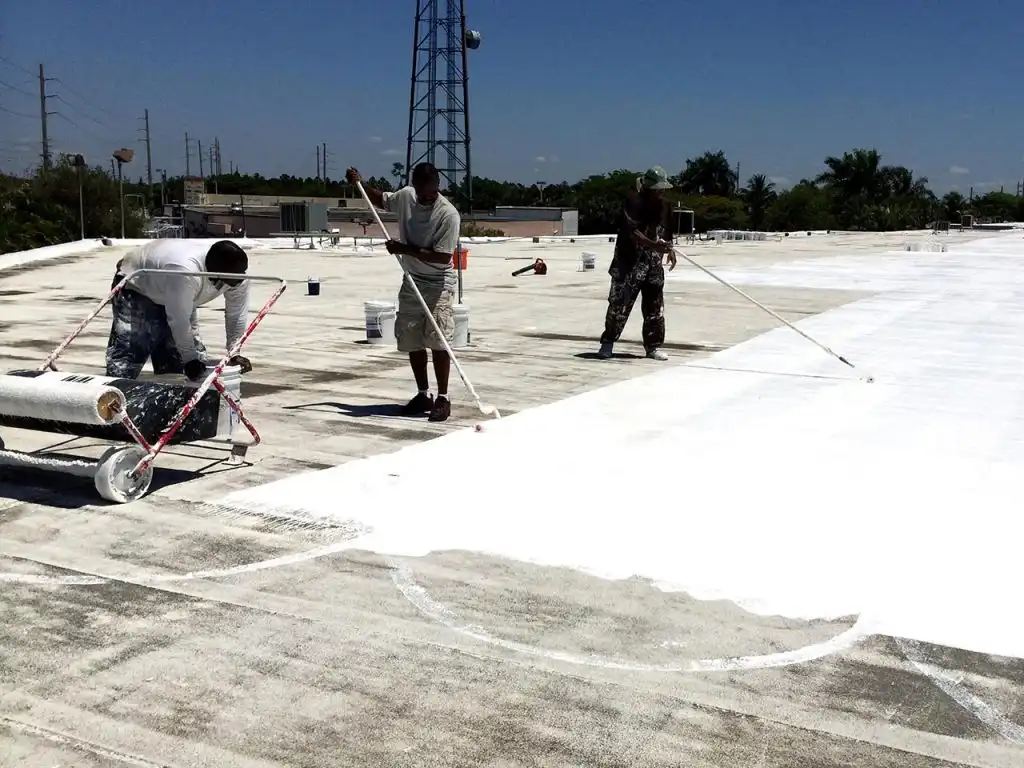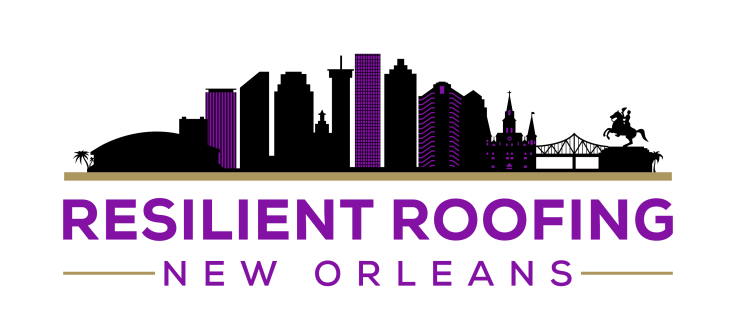For the Highest Quality Roofing at the Most Competitive Prices, Contact Us Today. Any questions? Call and ask!
For the Highest Quality Roofing at the Most Competitive Prices, Contact Us Today. Any questions? Call and ask!
Spray-on Silicone is a commercial roofing material that increases the longevity of roofs. A silicone coating protects your roof from UV damage and improves waterproofness.
Commercial roofing New Orleans is expected to last only about fifteen years, but this spray-on Silicone may double or triple that time frame. This makes it an excellent choice for environmentally friendly structures. And the best part is that it’s easy to apply – for a professional with the right experience, training, and equipment – at uneven surfaces, corners, and other hard-to-reach areas. This is what makes the spray-on Silicone an excellent choice for extending your roof’s longevity.
Get a Free Quote
A common issue with flat roofs is ice damming, which can cause leaks and major weather damage. Ice damming occurs when melted snow flows under the roofing system to the edge of the structure, where it refreezes before draining off. Spray-on Silicone prevents this by forming an insulating barrier between the roof and the melting snow.
If there’s one negative aspect of spray-on Silicone, it would be that you must clean roofs before the professional can apply a silicone coat. This is because the dirt and other substances on your roof will bond with the material, making it difficult to remove after applying a new coating. You’ll need to get rid of them, so they don’t stick to the Silicone when you apply them.
Also, it can be slippery when it’s wet, so you’ll need to be careful when walking on it. There should be warning signs to alert people who may be walking on it.
Absolutely! You’ll save a lot of time and money by applying a spray-on coating in comparison to the price of replacing the entire roof. Not only that, but you can prevent water leakage, which is one of the primary reasons why your roofing material will need to be replaced. The extra cost for this application is worth it to preserve your commercial building’s structure.

There is some prep work you need to do before applying for this application. That means making sure your roof is clean and free of debris and other substances that may stick to the coating while it’s drying. You’ll also need to make sure the surface is completely dry before applying, so avoid doing so when there is still rain in the forecast for the next 24 hours.
The process starts by inspecting the area with a high-tech infrared camera to ensure no saturated spots in the insulation under the membrane. After those areas have been resolved, the entire roof’s surface is power washed clean to remove all contaminants and ensure that it’ll stick well on your roof.
After this inspection has been completed, an additional layer is added, and any repairs to your existing roofing material have been made. If you choose, you can then apply primer before applying the silicone coating over the top as an extra barrier against water or other substances.
You also need to apply two coats of Silicone at a time to make sure that it further protects your roofing material.
The result is a class A fire-resistant, UV-protected sealant and coating system that prevents water and ice damming and ensures durability for your roof.
Here are the most common questions that homeowners ask when it comes to Spray-On Silicone Roof Coating service:
You should not walk on the roof for at least 24 hours and only then when there is no rain. As far as time frame, typically two days, it should be ok to walk on.
It varies depending on the size of your roof and how many coats you decide to apply. It can range from a few hours to an entire day for all the coats you decide to add. A double-coat should have a minimum of 24 hours in between to allow for proper drying time.
You cannot apply spray-on Silicone when it’s below -10 degrees Celsius or colder. So if you plan on applying it in the winter, do so before the snow starts falling, or else the snow may stick to the application and ruin your hard work. Plus, freezing temperatures thicken the Silicone to the point where it is not sprayable.
Typically, this can last anywhere from five to ten years depending on exposure to extreme heat, cold, rain, snow, etcetera. What’s nice about this type of product is that it can be reapplied over existing surfaces with ease if you ever need to do so again in the future.
No, It is not toxic since you are only applying on the top of the existing roof. You should, however, avoid contact with your eyes or skin. If it gets on your skin, you can wash it off with soap and water. If it comes in contact with your eyes, flush them out with plenty of water.
Yes, if your roof is in poor condition, it will stop leaks. One sign of a leaky roof is when the water in your attic or your basement seeps through onto walls and flooring. A silicone coating will seal all these holes to prevent leakage into your home or office space.
Both silicone and acrylic coating is good at protecting your roof from weather elements. Silicone is more flexible than acrylic, which makes it ideal for roofs that experience harsh conditions. However, there’s no significant difference between the two regarding light exposure or temperature changes. Overall, Silicone is a better choice because it lasts longer and is more durable in harsh climates.
